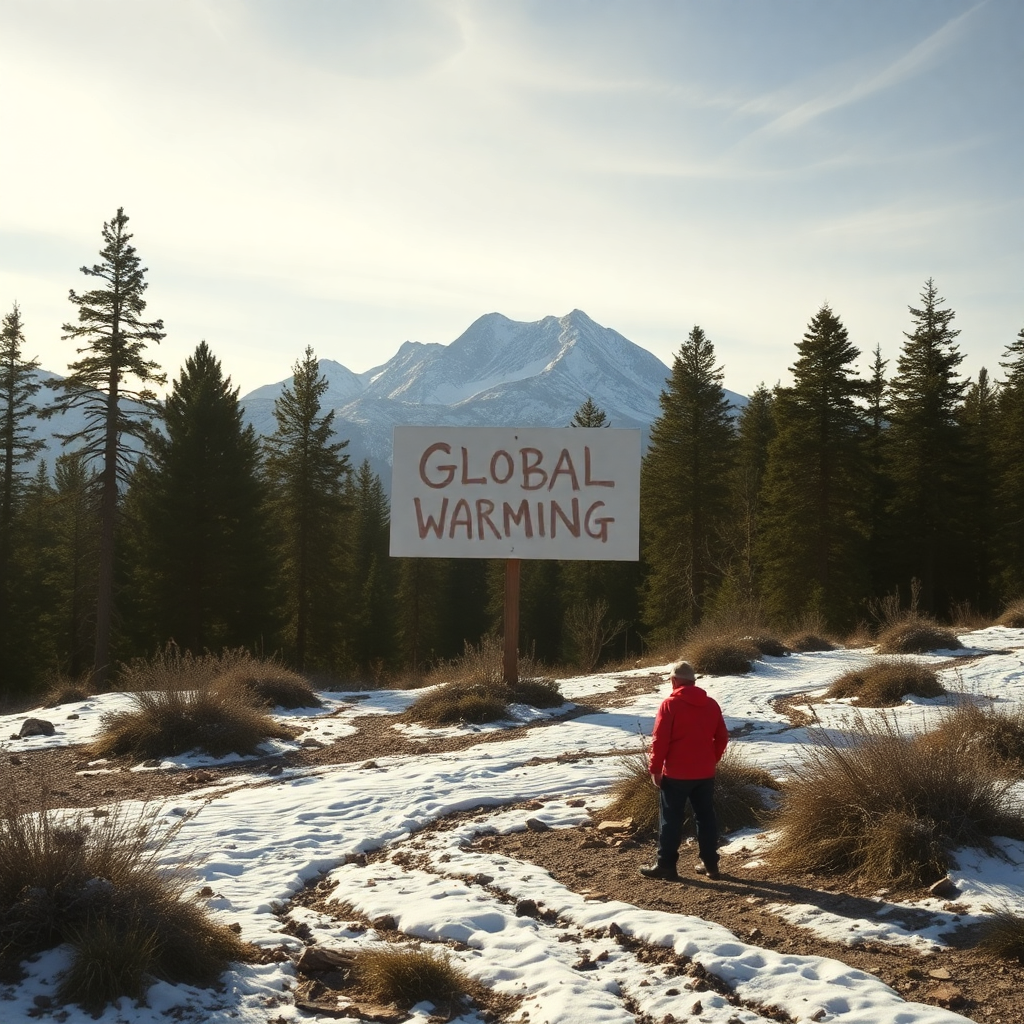Intriguing Climate Denial And Why Some People Reject Global Warming

Climate Change Denial
Why Do People Reject Global Warming and Does It Matter?
Despite overwhelming scientific evidence, climate change denial remains a persistent issue worldwide. While the majority of experts agree that global warming is driven by human activities, some individuals and groups refuse to accept its existence or severity. But why do people deny climate change? Is it a matter of misinformation, political influence, or psychological resistance? More importantly, does climate denial impact real-world environmental efforts?
The Psychology Behind Climate Change Denial
Cognitive Dissonance and Fear of Change
Accepting climate change often means acknowledging the need for significant personal and societal change. For some individuals, this creates cognitive dissonance—an internal conflict between reality and their existing beliefs. Rather than adjust their views, they may dismiss climate science to avoid discomfort.
Influence of Personal Experience
People who do not directly witness climate-related disasters may struggle to see climate change as a real threat. If they live in areas unaffected by extreme weather, rising temperatures, or environmental degradation, they may perceive global warming as exaggerated or irrelevant.
Misinformation and the Role of Media
Political and Corporate Interests in Climate Denial
Fossil fuel industries and certain political groups have historically funded misinformation campaigns to downplay climate change, protecting their financial interests. Some media outlets amplify skepticism, spreading uncertainty and fueling public doubt.
Social Media Echo Chambers
Misinformation spreads rapidly through social media, reinforcing skepticism among those who already doubt climate science. False claims, misleading statistics, and conspiracy theories create an environment where climate denial thrives.
Scientific Consensus vs. Public Perception
The Overwhelming Agreement Among Scientists
Over 97% of climate scientists agree that human activities are driving global warming. However, public perception remains divided due to misinformation and ideological biases. The gap between scientific understanding and public belief is one of the greatest challenges in climate communication.
Misinterpretation of Weather and Climate
Some skeptics argue that cold weather disproves global warming, misunderstanding the difference between short-term weather fluctuations and long-term climate trends. Climate change affects overall global temperatures and extreme weather patterns, not just seasonal variations.
The Impact of Climate Denial on Policy and Action
Slowing Progress on Climate Solutions
Climate denial hinders urgent efforts to combat environmental damage. When influential groups reject climate science, policies that promote clean energy, emission reductions, and conservation face opposition, delaying necessary action.
Does Climate Denial Still Matter?
Despite increasing awareness, climate denial remains a barrier to widespread acceptance of sustainable solutions. While scientific evidence is stronger than ever, social and political resistance slows down progress in addressing climate change effectively.
The Economic Motivations Behind Climate Denial
Fossil Fuel Profits vs. Environmental Responsibility
The fossil fuel industry benefits from maintaining climate skepticism. Large corporations with vested interests in coal, oil, and gas lobby against climate action to protect profits, often influencing political decisions that stall clean energy development.
Short-Term Gains vs. Long-Term Sustainability
Economic priorities often favor immediate financial growth over long-term sustainability. Governments and businesses reluctant to transition to renewable energy may amplify climate skepticism to justify continued dependence on fossil fuels.
The Role of Psychological Biases in Climate Denial
Confirmation Bias and Selective Acceptance of Information
People tend to seek out information that supports their preexisting beliefs, dismissing opposing evidence. Climate skeptics may selectively interpret studies, focusing on uncertainties while ignoring overwhelming scientific consensus.
Optimism Bias and the “It Won’t Affect Me” Mentality
Some individuals assume they won’t personally experience climate disasters, leading to complacency. This optimism bias weakens urgency and discourages proactive environmental policies.
How Climate Denial Affects Global Cooperation
Challenges in International Agreements
Climate denial among key leaders or nations can stall international progress. Agreements like the Paris Climate Accord require cooperation, but if certain governments refuse to acknowledge climate change, global efforts suffer setbacks.
Misinformation Disrupts Climate Diplomacy
Misinformation campaigns not only affect domestic policies but also hinder global negotiations. Mistrust between nations due to climate skepticism delays coordinated action and weakens commitment to reducing emissions.
The Influence of Cultural and Religious Beliefs on Climate Denial
Religious Views and Climate Skepticism
Certain religious perspectives frame climate events as natural occurrences beyond human control. Some groups reject climate science, believing environmental shifts are part of a divine plan rather than human influence.
Cultural Identity and Climate Resistance
Climate skepticism is sometimes tied to cultural identity. In regions heavily dependent on industries like coal or oil, acknowledging climate change threatens local economies, leading communities to resist environmental policies.
Strategies for Overcoming Climate Denial
Improving Climate Education and Public Awareness
Combating misinformation requires accessible education and clear communication. Schools, media outlets, and scientific organizations must collaborate to provide accurate, digestible climate science.
Engaging Skeptics with Practical Solutions
Rather than overwhelming skeptics with alarming data, offering realistic solutions—such as cost-effective clean energy alternatives—can encourage gradual acceptance of climate action. Focusing on economic benefits and job creation helps bridge gaps in understanding.
Conclusion
Climate change denial is rooted in psychology, misinformation, economic motives, and political influence. While scientific consensus is clear, skepticism continues to shape public perception and policy decisions. Acknowledging the sources of climate denial is essential for improving education, spreading accurate information, and ensuring meaningful action to protect the planet.
Join the Conversation!
Why do you think some people deny climate change?

